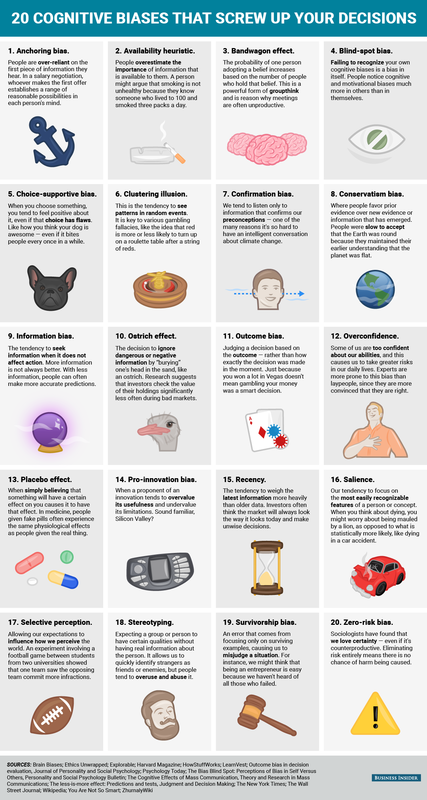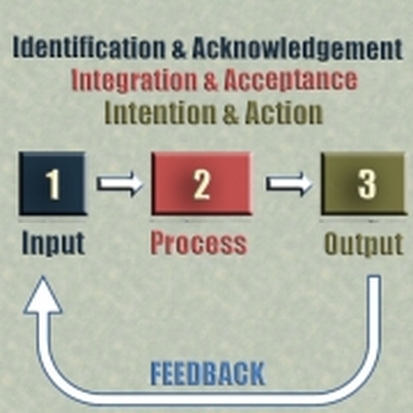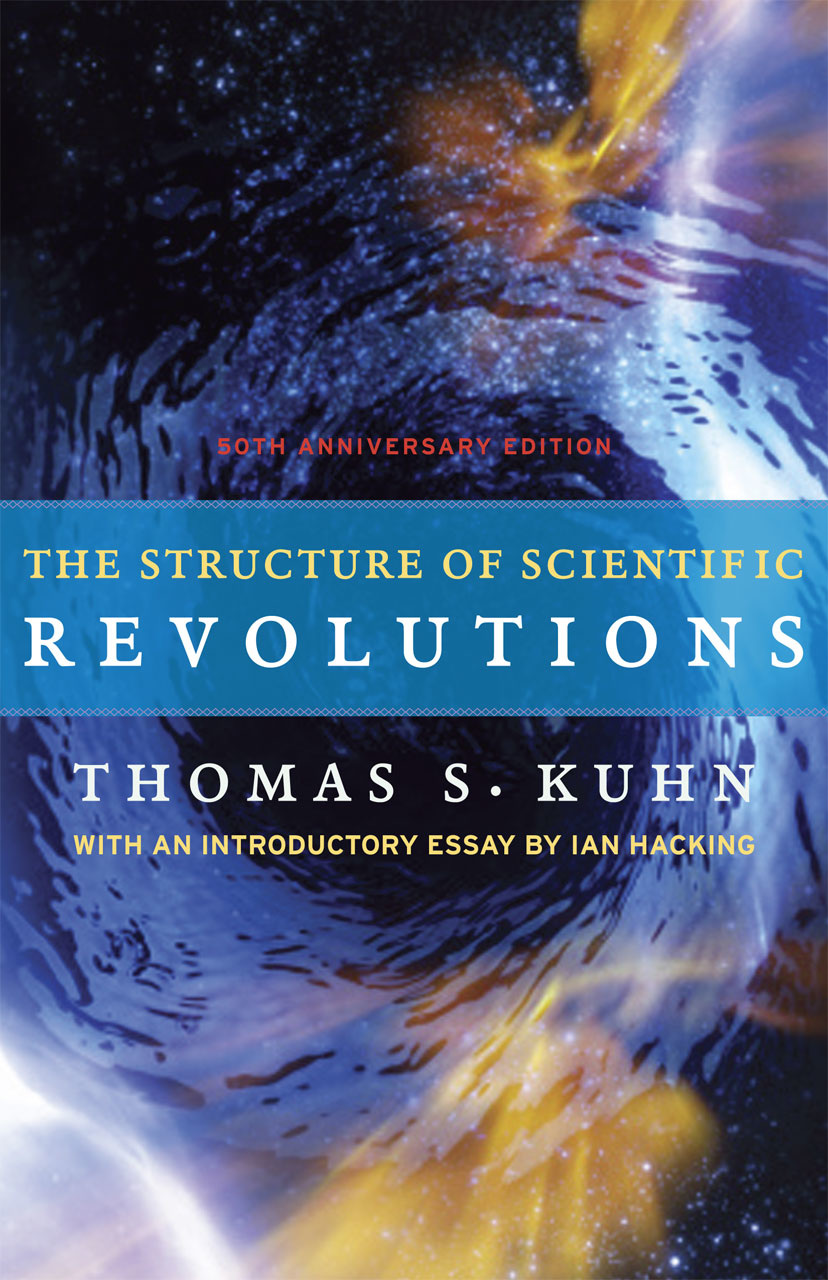Here's a lost of the more common and impactful ones:
|
A while back, I shared a list of logical fallacies. It is important to be aware of fallacious reasoning, especially when engaged in exercises such as philosophy. It is equally important to be aware of cognitive biases, even in simple daily tasks. Most logical fallacies tend to have positive rhetorical impact due to the way our brains work, specifically the illogical biases that they lend themselves to.
Here's a lost of the more common and impactful ones:
0 Comments
The time has come, I think, to purge some podcasts off my list. I have more podcasts than I have time, and some of them have ceased providing utility for my current situation... which happens a few times a year. Usually, when this time comes, I share on facebook the ones that I am abandoning and why. Now that I have a platform on which I talk about podcasts incessantly, I figure this may be a better place to do so.
Podcasts I continue to listen to (in order of priority):
Podcasts I no longer listen to:
Podcasts that have been discontinued:
This suggestion is a bit time consuming, but no more so than a few of the books I've suggested. Today's suggestion is a podcast series on the Trivium method of reason and it's relationship with NonViolent Communication.
I recommend listening to this series, as it effectively outlines NVC, the Trivium, and provides a summary education concerning CIA programs like MKUltra and the cultural zeitgeist of cybernetics. One can make do with listening to episodes 363 through 370, but if one wishes, tehy can listen to all of the videos on this page in order to get the full picture. http://schoolsucksproject.com/category/podcast/the-trivium-applied-to-communication/
Today's resource suggestion is a simple logic test and the explanation concerning the results of that test. "How Logical Are You?" is a short, simple video that explains what amounts to one of the foundations of Bertrand Russel's logic works. These sorts of puzzles ought to be commonly known to people at large as, without them, illogical assumptions and prejudices become the cultural narrative. I'm speaking less about racism and more about the inevitable rise of criminal and misanthropic institutions.
You can find the video here, on YouTube. I got it right. I say this not to brag, but to prove that there is no excuse for not getting it right, if my dumb ass can. If you don't get it right, that's fine; you can learn (with time and effort) how to think logically, too.
The rules to the puzzle may not be very clearly stated. The cards have two sides. The rules concerning "if one side is X, the other side is Y" refers to individual cards, not the set. If you want a clue, I recommend hearkening back to what Karl Popper thinks about knowledge and how one increases certainty..
Also, while it sounds like the video poo-poos inductive reasoning, if you watch it all the way through, they clearly show the utility of induction, even if it isn't logic, per-se. I've previously recommended reading Karl Popper's Conjectures and Refutations, as I feel Popper has provided the best set of epistemological tools and groundings for science to-date. Thomas S. Kuhn is often trotted out as a more modern counterpoint to Popper, especially in his work in The Structure of Scientific Revolutions. You can get the .pdf for free here, but I bought the book so I could write in the margins. If anyone is familiar with Popper, Kuhn, and my own dabbling in epistemology, they will notice that the other two have influenced my epistemology dramatically. Where many set up an opposition between Popper and Kuhn, I believe that antagonism (at least, in the realm of ideas and logic) is unwarranted. Popper was engaged in a Bertrand-Russel-esque project of trying to use the tools of logic and reason to ground the functional applications of that logic in a manner consistent with the logicians' project.
Kuhn, on the other hand, is making an observation of the normative manner in which science is done. Wielding the tools forged by Wittgenstein in the realms of language and cultural phenomena, Kuhn indirectly draws parallels between the manner in which science is actually done and the language games played in Wittgenstein's ontology. Because of this difference in focus and approach, what results is Popper's "This is the epistemic grounding for the scientific exercise and methods" is set in opposition to Kuhn's "But this is what scientists are actually doing." In reality, there can be a reasonable synthesis betwixt the two. Popper, early on in Conjectures and Refutations, describes the different ontologies of the scientific method: essentialism/realism, instrumentalism, and what he calls "conjectures" but I like to call falsification (or, induction by falsifiability). Popper makes a compelling case for falsification as the most cogent ontology of science. Kuhn is, by his own admission, a staunch instrumentalist. This instrumentalism is a matter of normativity. In the case of the indirectly observable (particle physics, quantum mechanics, evolutionary and global climate sciences, etc.) Popper's defense of falsification and attack on instrumentalism begins to falter, but not fail. Because instrumentalism has shown to get more quantifiable and marketable results (more journals published, more TV shows by Neil De Grasse Tyson, and more government grants), it has become the cultural MO for quite some time in the scientific community. Kuhn explores the sociology and phenomena of scientific communities and the nature of change between different theories and methods of doing science. Insofar as he is making normative claims, he does an excellent job of showing how things are done. I feel that he fails in making claims as to how science should actually be done, essentially taking the normative case and saying that "it isn't fully developed yet, we ought to continue along this instrumentalist and diversified method of theory-making." without making a compelling case as to why that is the appropriate course of action. This book, along with Poppers, is crucial to understanding the rationale and culture behind the claims made by physicists and philosophers of science today, especially when dealing with the limit-sciences of thins like quantum physics. As a work of literature, it is a bit rough to read. Where Popper takes 600-ish pages to explicate and defend 600 pages worth of material in a readable and concise manner, Kuhn takes 200-ish pages to explicate one central concept that could be done in less than 50 pages, applying the same rubric to multiple cases, over and over, in a manner that could be done more directly without losing any substance or rhetorical power. There are more than one chapter in my unpublished book dedicated to epistemology and the synthesis between Popper and Kuhn, which have already strongly influenced certain blog posts, such as the post on Paradigmatic Awareness, in case one wants to explore related concepts before devoting time and money to reading the primary source. I wrote a post about paradigmatic awareness a while back. I wrote it while editing a couple chapters in my book. Those chapters were concerned with epistemic rigor and the manner in which one can rightly approximate knowledge using experience, logic, and thresholds of doubt. I believe such things to be more important than nearly any other human faculty. Because my book is not yet completed or published, I will share someone else's work which is similar, if not quite as deliberate, to those chapters. The Voluntary Life Podcast has a three episode series titled "How to Think for Yourself": Part 1 is concerned with why methods of reason are important to rational creatures and begins to address the difficulties in establishing a method of reason. Part 2 is concerned with a brief overview of the scientific method, philosophy of science, and their relationship to epistemology. Most important, it explains the requirements for epistemic confidence. Part 3 is concerned with a priori reasoning and the relationship between reason and freedom. It's encouraging to see someone else produce work that is so similar to my own, in that it makes me feel a little less crazy. The differences between the two are also encouraging, as it makes me feel I have something to contribute to the conversation. I am considering different distribution methods for my book. Feel free to read more about it here.
I told myself I was going to take a break from recommending Tom Woods material for a while, but here I am again. This guy's just a genius, and I'm too busy to find something better than what this guy has to offer. This is it, though. I'm taking a one-week break from recommending Woods.
This podcast, Is Reason Enough? (and the additional materials), seems to be an important tool when trying to change other people's minds (something that cannot be done over social media, as they explore in this podcast). One will notice the striking resemblance that it bears to NonViolent Communication. I don't believe this is a mistake, given the results I've had with NVC and the results that are expected with the method of discussion as seen in today's podcast. The first podcast I ever downloaded, The Partially Examined Life, is a perennial staple of my podcast-listening and self-education. Their Zero Episode does a great job of introducing their project. I have gotten the most out of their podcast by reading the material ahead of time, listening to the podcast, and then talking to someone (anyone) about the material discussed and trying to tease any kind of intellectual response out of them. Previous attendees of my mostly-defunct philosophy club will recognize several of these episodes and ideas. I understand several of the earlier episodes (my favorite ones) are behind a paywall these days, but people have to make a living, right? They're up on iTunes and all the other podcast aggregators. My favorite episode is probably their 100th episode... however, their commentaries on Camus, MacIntyre, Antigone, etc. are amazing. I recommend starting at the beginning and moving on from there, as they do build on past episodes in order to be able to address higher-level and more esoteric concepts later on.
Today's resource is a little heavy on the terminology, but I think those that are even slightly above-average can at least get the main thrust of the discussion. Today's resource suggestion is the 228th installment of the History of Philosophy Podcast, Without Any Gaps. Truly, the entire series thus far is an invaluable resource for even one who is trained in philosophy, as there really are no gaps in this production, filling in whatever may be overlooked by directed scholarship. Each episode builds on the last, true to the history of philosophy. So, if you find that this episode is beyond your comprehension, you can simply move back through history until you find something that's more your pace. Honestly, though, everyone should start at the beginning and work their way to this episode. The episodes are short and entertaining (as entertaining as the subject matter can be, anyway), and released weekly so, even with more than 200 episodes released, you can still catch up.
George Ought to Help is a very short, much more kindly iteration of a point I've made on this blog and elsewhere. This is a good video to serve as a refresher to those that already understand the basics of morality, and it serves as a great starting place for those that aren't quite on board yet with anarchy.
|
Archives
October 2015
Categories
All
|








 RSS Feed
RSS Feed
